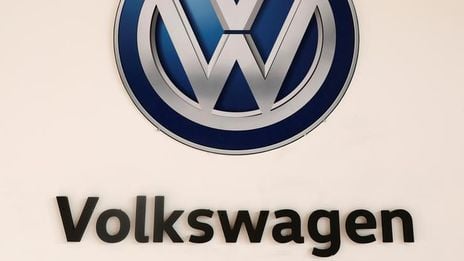Ms. Mendiluce, the world faces numerous major environmental problems. What does this mean for companies - do they have to reinvent their business?
Every company needs to reassess how they do business - both the way they conduct business now, and the way they hope to do business in the future. It is clear from the problems we see all around the world that our current way of doing business is not sustainable. One of the fundamental problems is that we value economic markers but not environmental or social ones. So the consumption of natural resources, the production of greenhouse gas emissions or a businesses' impact on communities and people, is not adequately reflected in balance sheets. Companies make profits but they don't account for the external costs to society. We need to change that.
What are the most pressing problems?
The climate crisis is by far the greatest global challenge of our day. We need more speed! The report by the Intergovernmental Panel on Climate Change (IPCC) makes it very clear that the world needs to be net zero emissions, this means that we must remove as many emissions as we emit. Countries and companies should take net zero targets because they will not survive in societies that fail. My impression is that many leading companies have understood the urgency of effective climate protection. All in all, however, there is still a lot of convincing to be done and we need more action, now!
How can cooperation within the WBCSD contribute to this?
Effective climate protection only works if it involves companies across entire value chains. WBCSD brings cross value chain and geographically dispersed companies together, to collaborate in addressing the biggest sustainability challenges of our time. Global cooperation helps companies understand global megatrends, industry best practice, how systems interrelate and how to identify unwanted consequences of their own actions.
That sounds rather abstract. Can you give an example?
The history books are full of examples. Let's take oil lamps: the oil used to come from whaling - until it was discovered that permanent hunting endangered the survival of whales. So, petroleum became the preferred option, creating new problems in the form of climate-damaging emissions. The historical example shows that even good intentions can have negative consequences. But it is not just a question of avoiding unintended negative impacts through close cooperation. Cooperation also opens up economic opportunities. Today, for example, many companies are working together to facilitate the circular economy, where company waste or byproducts can become a valuable material for another company. For example, gases produce from steel-making can be used to produce biofuels.
How would you advise automobile manufacturers to act?
The transformation of mobility is inevitable. Emobility, connected vehicles and new mobility services are here to stay. Automobile companies can make this transition irresistible. It will not be easy, as the transformation will impact the way they are doing business and the skills that are required to prosper in the new environment. My recommendation is that these caveats become part of the solution, not a barrier to action. Many people expect the industry to bring to the market clean cars for the millions and not just for the millionaires.
What other opportunities do you see for sustainable companies?
The biggest challenge for cities and its citizens today is traffic congestion. Mass transport integrated with mobility services, micromobility and mobility hubs are going to operate side-by-side with traditional mobility. Connecting these new modes of transport to ensure efficient and convenient mobility is definitely the way forward. Another important fact is demographic change. With our population getting older and older, different mobility services will be needed to improve accessibility to the senior citizens.
What do you personally want to achieve as an environmental expert and consultant?
A lot has already changed in recent years - partially thanks to companies that are courageously moving forward. However, we are still not making progress fast enough in terms of climate protection. In my personal view, climate change is the greatest threat to humanity. If we do not act quickly, the consequences will be dramatic and long-lasting. We will condemn our descendants to a hotter world with more risk of extreme weather events. I want to help more and more companies move from the understanding to the action, from identifying barriers to addressing solutions that are economic, socially and environmentally robust. I want to help companies build on a shared purpose, one where companies have net zero impact and provide long lasting value to generations to come.
Attachments
- Original document
- Permalink
Disclaimer
Volkswagen AG published this content on 21 August 2019 and is solely responsible for the information contained therein. Distributed by Public, unedited and unaltered, on 21 August 2019 08:02:03 UTC




